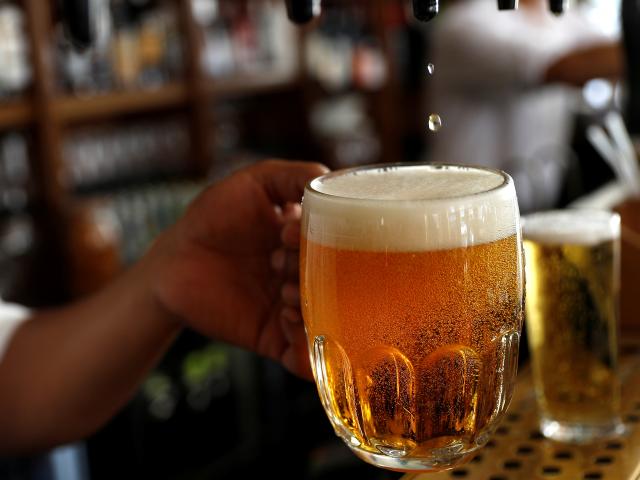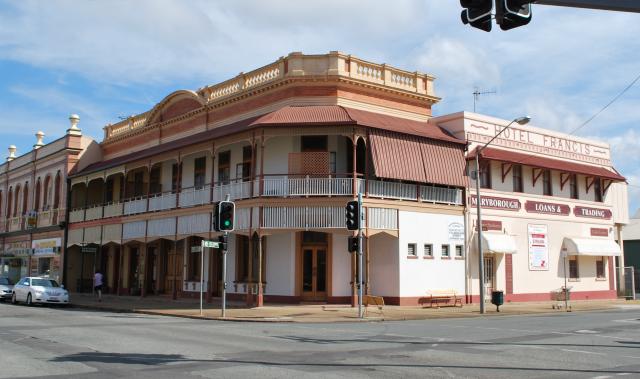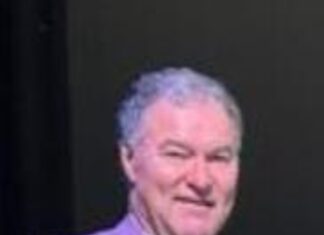Following the positive reaction to our little Friday night beers rant about the rich a couple of weeks ago, we’ve decided to formalise these sessions under the banner of The Pub Test and publish a couple leading up to the 21 May election. Kind of like the leaders’ debates, but with no leaders and plenty of beer.
The subject, of course, was the imminent Federal election and whether our votes would count for much in a safe LNP seat with a 13.1 per cent margin. Were there any members of our beer circle wanting change? Our numbers had expanded slightly, including our first woman, so who knew? There was only one way to find out.
Pack leader: “If you live in Noosa and you don’t like the federal government, who are you going to vote for? There are nine challengers and none of them excites.”
A voice: “You can make it a protest vote, particularly for an Independent. And there’s a real move towards independents across Australia, which is interesting because if you look at the Constitution, there’s no mention of political parties, only elected representatives. That’s first principles of a democracy. Only a fraction of the population belongs to a political party and yet they occupy about 95 per cent of the seats in parliament. Personally, I believe that independents are worth supporting because they can offer true representation, and even if they don’t win, the parties take notice of swings against them and they get a strong message.”
This was a promising start because it cut across two important issues – the value of independents and the value of true representation. True to the Constitution, independent MPs were common in the parliament during the first half of the 20th century, but after World War II, Australia’s political party system stabilised, leaving independents with less room to move. In fact there were no independents elected between 1940 and 1990.
“Former North Sydney MP Ted Mack was the first of the modern independents, and there’ve been several since,” electoral expert Antony Green recently told the ABC.
“And there’s five in the parliament at the moment. This is just a sign of the decline of the major-party vote. If you go back to the 1970s, the two major parties polled 90 per cent of the vote, and it fell below 80 per cent for the first time in the 1990s and is dipping below 70 per cent these days.”
In the time of Teal (somewhere between green and blue) and the Voices movement providing strong support networks in many seats, the independents, like our own Sandy Bolton in the state house, are only going to get stronger and more prolific, which brings us to true representation.
In federal politics, you could argue that Noosa doesn’t have it.
You can read more on this in A Wide Bay snapshot (page?), but in a nutshell, when our sprawling electorate was created at Federation 121 years ago, farming and mining were the only games in town, and it made sense to unite the Noosa River settlements with the much larger and well-established service centres of Gympie and Maryborough.
We were all on the same page, and now we’re not.
The best evidence of this is that in the 2019 federal election Noosa’s vote alone would have been lineball, probably just going to the ALP on Green preferences. (In three polling booths, Peregian Beach, Cooran and Boreen Point, that is exactly the way the vote went.)
So a stand-alone Noosa would be a notional swing seat, much as it is in the Queensland Parliament. But that’s not the world we live in.
Back to the beer circle.
Pack leader: “So how do you exercise a protest vote in Wide Bay?”
One-pot screamer: “Look, Mr Potato Head could win that seat for the LNP, but I think people are becoming more conscious of their vote and are taking notice of policies rather than getting caught up in personality politics. I live in hope that people will become more informed voters, but I can’t see any change in Wide Bay this election.”
A slightly salty voice: “And the electorate is so diverse, ranging from working class Maryborough to conservative Gympie and way out to Murgon and Cherbourg, where there all kinds of socio-economic issues. It’s huge and we’re just like this rich suburb attached to it. The only way you’re going to change that is to do a gerrymander!”
One-pot: “The fact that it’s a safe LNP seat is not entirely a bad thing when you consider that we’ve got someone there [Llew O’Brien since 2016] who’s prepared to cross the floor on issues of conscience. I wonder if that would have happened if this was a marginal seat.”
A feminine voice: “We started a Voices group in Wide Bay at the end of last year and we failed miserably. We canvassed for a candidate, with someone in Maryborough helping with that, but despite our best endeavours, we just couldn’t find a candidate so the group lost its momentum.
“But I believe if we’d had more lead time and the right person had popped up, we could have got people behind us. And of course you need massive momentum in Wide Bay to have any kind of impact, and none of the candidates we have now have anything like that.”
Salty voice: “I find it strange that the Teal army hasn’t grown in Noosa the way it has in places like the eastern suburbs and northern beaches of Sydney where there’s a similar demographic. It’s happening here in state politics with Sandy, but we’re not doing it locally at the federal level. There should be more of an upwelling.”
Feminine voice: “There’s no doubt that people will get behind an issue that has local ramifications. You only have to look back to the fight against the Traveston dam. But how do you tap into that federally?”
The group shifted gears to look at the federal issues that Noosa people are concerned about.
Surprise, surprise, aged care was right up there.
Feminine voice: “I saw some interesting stats on ageing demographics and basically when you hit 65, no matter what your voting history might have been, you vote conservative.”
Another voice: “And Noosa has the oldest demographic in Queensland.”
Pack leader: “The median age of Queenslanders is 36. In Noosa it’s 45, and more than 20 per cent are over 65.
“I’m over 65 so I can speak for the geriatrics. I accept that as people get older they get more conservative, in all ways including politically.
“But there might be a game-changer this time around, because right now we’re old and scared, and we might be scared enough to vote for change. We’re scared about climate change, about the cost of living, about aged care, about pandemics, about national security and much more.
“I think a lot of people feel like they’ve been robbed of a secure retirement in Noosa where, traditionally, bad things happen somewhere else.”
One-pot: “At the national level, I think that if the present government gets back in it will be so disheartening for a lot of people, given the track record and the way ScoMo has handled the key issues. But in Wide Bay we have a member who is actually popular and has credibility, so if you want to change the government there’s no point attacking Llew, you go after ScoMo.
“It won’t make any difference in Wide Bay in 2022, but everything could be very different if Llew is in Opposition.”
From the concerns of the old, the beer circle (now on its third) moved to the issues of the young.
Feminine voice: “If you talk to anyone under 30 all they care about is climate change.
“There’s been a record-breaking voter registration amongst the young for that reason. They want to have a say.
“Of course with our median age here that’s not going to mean much, but it’s good for the country.”
Another voice: “Whatever age you are, the past few years has been a real wake-up call on climate change. It’s real and it’s here. Even the local Member, who was making noises very much like a climate change denier a few years ago, has gone very quiet on the issue.”
Salty voice: “Politicians on both sides seem to think that if they keep saying zero emissions by 2050 that will get them re-elected without having to do anything, but it’s not enough and people are starting to recognise that.”
Feminine voice: As the only woman here, I want to remind you all that there are a lot of female swinging voters out there who are going to have a really hard time voting for Morrison and the LNP after the way the issues have been handled.
“Will this translate into a swing against the government on women’s issues?
“It could, and I think Labor is very aware of it.
“I talk to a lot of women who are politically disengaged and yet feel quite strongly about women’s issues, and maybe they’re going to get to the ballot box and remember the smirk, and go, nah, not going to vote for ScoMo.”
The beer circle is getting restless, time for last drinks. We’ve lightly talked about gerrymandering, but we all know that a bunch of disgruntled electors don’t pull the strings on redistribution. But we can dream, can’t we?
Salty voice: “We should join [adjacent electorate] Fairfax.”
Pack leader: “That sounds a bit too close to amalgamation.”
Salty voice: “Maybe, but the fact is that Fairfax has been changed a few times and it’s a quite small urban electorate whereas we’re a geographically huge rural electorate. When you look at the towns within Fairfax, like Eumundi, Yandina and Nambour, their demographic is changing quickly and becoming more like ours.”
Salty old voice: “I think we have to be wary of generalisations about the area because it’s changing so much and so fast.
“When you drive through the Mary Valley you can see the way the villages are changing and getting more progressive. Even Maryborough, in the midst of its empty shops and problems, has a progressive element that’s growing, mainly because of its affordability.
“The demographic is shifting rapidly because the old people who will never change the way they vote are dying and being replaced by young people who will. Kandanga is an example of how quickly that change is happening.”
Pack leader: “Housing affordability and demographic change might one day give Noosa sway over Wide Bay but not in 2022. On a closing note, do you think any of our political leaders has spelt out a vision for Australia?”
All: Nah.









